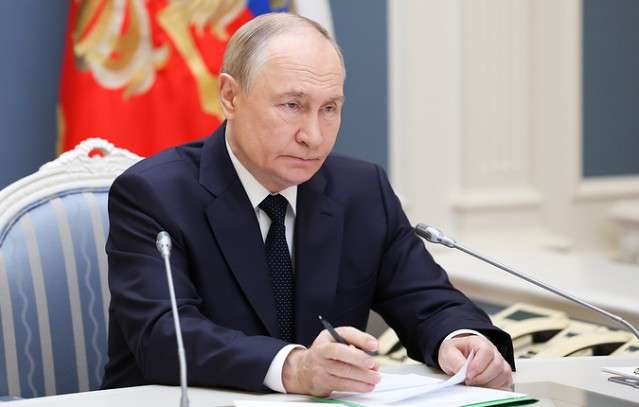
Russia to triple data center power use, build 38 new nuclear units: Putin
Russian President Vladimir Putin announced that power consumption by data centers in Russia is expected to more than triple by the end of this decade, driven largely by the country’s accelerating ambitions in artificial intelligence and digital infrastructure. Speaking at the AI Journey conference in Moscow on Wednesday, Putin stressed that ensuring energy stability for the expanding data economy is now a strategic national priority.
Putin said the “most important and fundamental task” is providing a consistent, reliable supply of large-scale energy to support growing computational needs. He emphasized that future data center development must be directly aligned with upgrades to Russia’s broader energy system, including next-generation coal-based facilities and clean energy resources such as nuclear power.
Highlighting nuclear energy as a cornerstone of Russia’s long-term plan, Putin said the country will continue building data centers at existing nuclear power plant sites. He also unveiled one of Russia’s most ambitious nuclear programs in decades: the construction of 38 new nuclear power units within the next 20 years. These units—primarily planned for the Urals, Siberia, and the Russian Far East—will collectively match Russia’s current nuclear generation capacity, effectively doubling the nation’s nuclear output.
Putin framed the surge in energy demand as inseparable from the global race to scale artificial intelligence. Calling AI development “one of the largest technological undertakings in history,” he said the bulk of future investment will go toward expanding computing power and securing additional gigawatts of electricity needed for digital systems to operate reliably.
The announcement comes as Russia pushes to strengthen its geopolitical and economic standing through major infrastructure projects. On Tuesday, Putin participated via video link in the keel-laying ceremony for the nuclear-powered icebreaker Stalingrad at the Baltic Shipyard in St. Petersburg. The vessel is part of Russia’s expanding Arctic fleet designed to maintain year-round navigation in the Northern Sea Route.
At the ceremony, Putin reaffirmed Russia’s strategic priorities in the Arctic, calling for a sustained and strengthened presence in the region. He said Moscow aims to unlock the full potential of the Arctic’s transportation network and develop a trans-Arctic corridor connecting St. Petersburg to Vladivostok, a move expected to boost trade, logistics, and energy security.